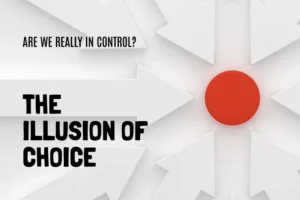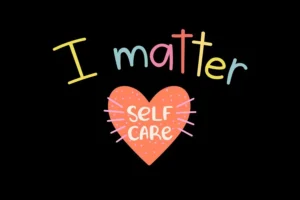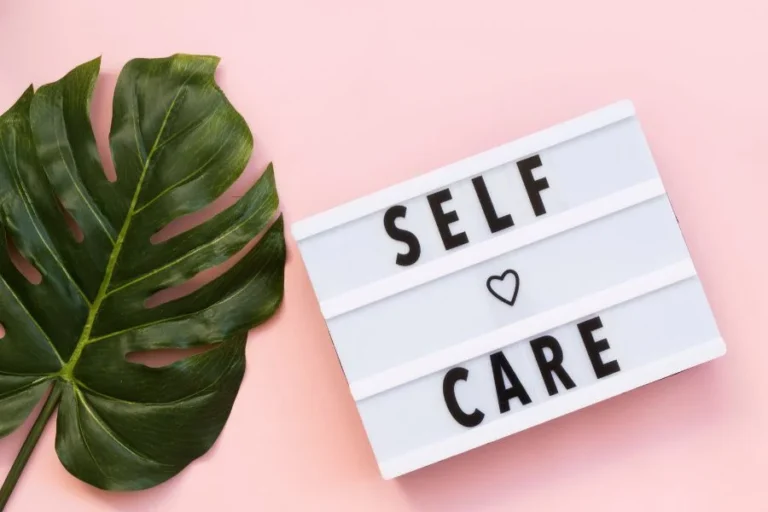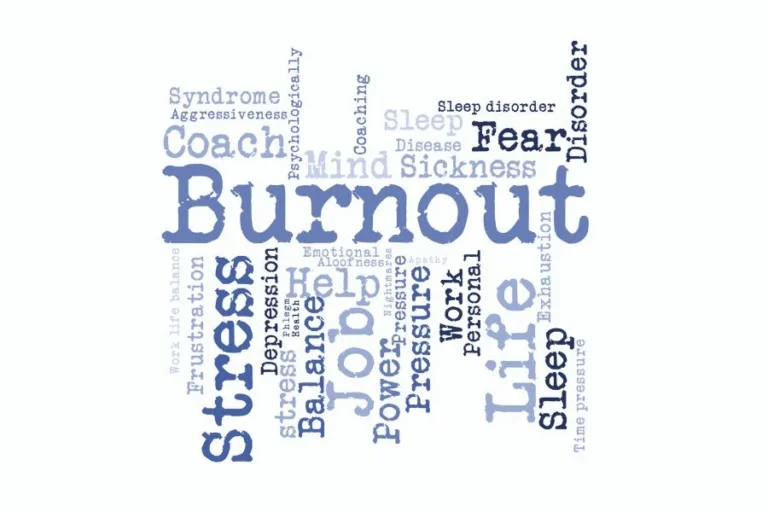Feeling like your partner might be losing interest in you sexually can be incredibly painful and confusing. In this article, we’ll explore the signs he doesn’t want you sexually, helping you understand and identify the subtle clues. By the end, you’ll have a clearer picture of your relationship dynamics and be equipped to address these issues head-on.
You’ll discover what sexual disinterest looks like, understand the reasons behind it, and learn how to navigate the emotional impact. Don’t worry; you’re not alone in this. With practical advice and expert insights, you will be able to improve communication and make informed decisions about your relationship.
Table of Contents
Understanding Sexual Disinterest in Relationships
What Is Sexual Disinterest?
Lack of sexual desire is not merely a temporary state of low sexual desire; it’s a multifaceted issue that reduces the desire for sexual relations in a relationship due to various factors that are emotional, psychological, and physiological. It can stem from factors like stress, lack of sleep, unresolved conflict, or hormonal changes.
However, relationship characteristics, conjugal conflicts of communication, and personal psychological state can significantly influence sexual desire. This is why the process of developing intimacy and solving those problems cannot be based on a simple understanding of those factors.
Can a Man Love You and Not Be Sexually Attracted to You?

It is possible for true love to exist without sexual feelings. Love includes intimacy, fellowship, and partnership, which are not always synonymous with sexual interest. Interference such as discordant libidos, work-related pressures, or lack of intimacy may sustain feelings of love but not passion. These all need to be distinguished in order to manage relationship dynamics in a healthy, sympathetic manner.
Related reading: 14 Signs He’s Obsessed with You in a Good Way – True Love!
20 Signs He Doesn’t Want You Sexually
Given below are the 20 signs he doesn’t want you sexually:
1. Lack of Physical Contact
The first way of demonstrating affection is touching. Lack of hugging, kissing, or holding of hands may cause a break off in the relationship.
For instance, while you two used to cuddle on the couch, he now sits at the other end of it. This reduces intimacy, as touch indicates closeness and may affect the relationship.
2. Avoidance of Eye Contact

Looking at one’s partner is a key to an emotional bond. In moments of affection, if he turns his face away, then there is something wrong with him, or he is distancing himself.
For instance, if he looks away when you discuss issues related to your emotions, it could mean he is not interested. This avoidance can make you feel like people are not really seeing or hearing you.
3. No Initiation of Sexual Intimacy
Starting intimacy is all about getting closer emotionally. If he never wants to have sex, it might be due to stress or dissatisfaction in a relationship.
For instance, if you are the one who initiates intimacy more often while he does it infrequently or not at all, it is cold. This imbalance can trigger feelings of rejection.
Related reading: 10 Yellow Flags in a Relationship: Signs Not to Ignore!
4. Limited Compliments on Physical Appearance
Praise maintains attraction and appreciation. If he ceases making comments about your appearance, then chances are, he has lost interest in you.
For instance, if he previously appreciated your choice of clothes and is no longer doing so, it is different. The lack of such affirmation could then impact your self-esteem.
5. Absence of Flirting
Flirting nurtures romantic interest. If he no longer flirts with you, it might mean that you are no longer being pursued romantically.
For example, if teasing is over and communication is strictly utilitarian, it indicates a decrease in sexual attraction. This can somewhat reduce the sexual tension that is usually present in romantic relationships.
6. Sex Feels Mechanical or Forced
Such sex can be characterized as routine or obligatory, meaning that there is no emotional connection.
For instance, if engaging in intimate moments is a burden and not a joy, it raises a concern. This mechanical way undermines emotional closeness.
7. Comparisons to Other Women
Competition damages self-image and fosters alienation. It may indicate dissatisfaction or unmet expectations in the relationship.
For instance, if he speaks about someone else as being more beautiful, then this has the effect of reducing your self-esteem. Such comparisons can harm your emotional and sexual relationship.
8. Frequent Excuses to Avoid Sex
Chronic abstinence can be caused by factors such as stress or problems in a relationship. It implies a lack of or a distaste for touch.
For example, if he frequently complains that he is tired or has many tasks, it could be his way of escaping closeness. Such avoidance may make you feel unwanted.
9. Neglected Personal Hygiene

Lack of grooming is a lack of effort to keep the attraction stimulating. This could be due to the fact that the patient is emotionally detached or has started neglecting themselves.
For example, if he stopped shaving or taking a shower, it means he is not interested in being appealing to the opposite sex. This can affect your desire for intimacy.
10. Persistent Irritation

When sexual tension remains unresolved, the man becomes irritable. Continued annoyance may be indicative of unfulfilled core effects or relationship deficits.
For instance, if he often gets angry with you, it may indicate a higher level of discontent. Some of the effects of this irritability include creating a hostile environment that will decrease intimacy.
11. Avoidance of Sexual Conversations
Not discussing sex at all can be perceived as awkwardness or shyness to talk about it. It may also be due to unresolved issues around intimacy.
For instance, if he avoids the topic every time you try to discuss sexual preferences, then he is not open. This leads to the lack of comprehension of each other’s requirements and hence this avoidance.
12. Initiation of Unnecessary Fights

Starting quarrels is also an unconscious way of ensuring that one does not get close to one’s partner. Conflict may act as a hindrance to the expression of emotions.
For example, if he begins squabbling over petty issues, it may be his way of establishing space. This tension can obscure the problems in intimacy.
13. Feeling Ignored or Unnoticed
Being ignored can lead to loneliness. Addressing feelings of neglect is crucial to regaining a sense of intimacy.
For example, if he doesn’t listen to your complaints, it makes you feel unimportant. This lack of attention weakens your relational intimacy.
14. Different Bedtime Routines
Shift work negatively affects the possibility of physical closeness at night. Disrupted patterns may indicate other problems with interaction.
For example, if he prefers watching a movie at night but prefers to sleep, then there will be less time together. This separation may result in a lack of intimacy.
15. Negative Comments About Appearance
Having critical remarks about appearance affects self-esteem. It could indicate that one of the partners is dissatisfied with the relationship.
For instance, if he degrades your weight and your dressing, it lowers your self-esteem. Such negativity affects both emotional and sexual intimacy.
16. No Effort to Initiate Intimacy
One of the most important aspects of relationships is the ability to initiate intimacy. Lack of effort might indicate erotic or emotional disinterest.
For instance, if he never initiates the conversation, it will be deemed a sign of a lack of interest. This can actually leave you feeling unappreciated and unloved.
17. Lack of Reciprocity
Steady non-reciprocity of emotions like joy and excitement indicates a lack of emotional involvement. Reciprocity play a crucial role in the development of intimacy and trust.
For instance, if he doesn’t reciprocate your thoughts and emotions during conversations, he is not comfortable. This disconnection can, in fact, erode your bond.
18. More Time Spent on Technology than with You

One disadvantage of gadget use is that it can distract from real moments. To maintain intimacy, both partners require equal focus and quality communication.
For instance, if he is constantly on his phone, ignoring you, and refusing to communicate, then there is an issue. This distraction can be detrimental to your connection.
19. Changes in Routine to Spend Less Time Together
Consciously avoiding shared activities creates a form of psychological space. It may show that the dynamics of the relationship still need to be ultimately settled.
For instance, if he suddenly has interests that do not involve you, it means that he is avoiding spending time with you. This can negatively affect intimacy and closeness.
20. Lack of Future Planning Together
Failure to engage in discussions concerning future goals and aspirations can be perceived as a lack of certainty or a lack of desire to commit. Finding common interests promotes bonding.
For instance, if he prefers to avoid discussing things such as future trips or life plans, this is reluctance. This lack of vision can cause a breakdown in the partnership.
Related Reading: Intimacy Pyramid: How to Build Un-breakable Relationships
Reasons He Might Not Want You Sexually
The reasons behind the signs he doesn’t want you sexually are given below in the table:
| Relationship Issues (Financial, Emotional, etc.) | Monetary problems or disputes may cause conflict and distract from love-making. Feeling unheard or undervalued is another common reason for a lack of emotional connection required for physical intimacy. |
| Boredom in the Relationship | Couples often develop a routine in relationships that may cause sexual monotony. Spending more time together, trying new things, and focusing on quality can help revive passion and desire for physical closeness. |
| Loss of Attraction | Attraction can wane over time as a result of changing appearance, maturation, or shifting priorities. |
| Confidence Issues in the Bedroom | Low self-esteem due to body image or poor performance hinders intimacy. |
| Impact of Medications | There are medications like antidepressants and other psychiatric drugs that have side effects that can lead to low sexual desire or sexual dysfunction. |
| Stress and Mental Health Issues | Mental Health Stress and anxiety disorder or depressive illnesses can be a significant factor in the erosion of libido and emotional responsiveness. |
| Body Image Concerns | Negative judgments about the body can influence the willingness and desire to participate in sexual practices. Self-acceptance, body positivity, and compliments can help to create the appropriate atmosphere where both partners will feel cherished and secure. |
| Health Problems | Depression, anxiety, low libido, or postpartum-related problems could hamper physical strength and capacity for physical closeness. |
| Unrealistic Expectations and Sexual Boredom | Unrealistic Expectations or Routine Sexual Patterns – One of the reasons for dissatisfaction and fading interest. Exploring new sexual activities, talking about fantasies, and focusing on mutual sexual satisfaction can help. |
| Low Sex Drive | Physical, psychological, and relational factors cause Low Libido. Physically, low libido can be caused by hormonal imbalances or the use of drugs such as antidepressants and antipsychotics. Psychologically, one may be stressed, depressed, or anxious, conditions that are likely to reduce sexual desire. In the relational context, factors such as unresolved conflict, lack of communication, and emotional estrangement may reduce attraction and intimacy. |
How Do You Know If a Man is Forcing Himself to Love You?
By focusing on the info given below you can easily understand if a man is forcing himself to love you or not.
Signs of Forced Affection
| Superficial Gestures | Compelled affection is usually expressed through mere physical displays of affection. For example, a man can offer flowers or gifts but with no enthusiasm at all. Such actions may come across more as a chore rather than coming from the heart. It looks rather forced, not heartfelt. |
| Lack of Consistency | Inconsistent behaviors also communicate forced affection. He could be loving one moment and cold the next. This lack of consistency shows that there is no true feeling involved in their day-to-day activities. There is no steady communication, and it rises and falls like a roller coaster all over again. |
Emotional Distance
| Minimal Sharing | Restricted self-disclosure evidences a lack of intimacy. He may have trouble talking about what he wants to do in the future or how he feels about things, which results in a failure to foster genuine intimacy. For instance, he shifts focus when talking about long-term objectives, which indicates a lack of engagement. |
| Detachment | Another unmistakable signal is detachment. He may participate in activities side by side with them without demonstrating genuine concern. This detachment can be seen as a sign that people do not truly connect with each other. Just think of him having a date with you, but he is constantly checking his phone more than talking to you. |
Polite But Distant Behavior
| Surface-Level Politeness | A lack of friendliness in manners is a sign. He might act politely but appear to lack human feelings in social relations. This politeness might indicate an attempt to avoid confrontation instead of nurturing intimacy. Imagine him bowing and thanking every day but with no ideas or opinions to express. |
| Avoiding Conflict | Yet another indication is that he does not discuss important issues to avoid tension. He may avoid dealing with issues related to feelings, which demonstrates a lack of willingness to establish genuine closeness. For example, he may ask questions about feelings to avoid quarreling. |
Unresponsiveness and Closed Body Language
| Limited Responsiveness | A lack of response during conversations may suggest that a person is uncomfortable. He may answer questions briefly, or he may appear aloof. This lack of engagement can be attributed to emotional barriers. Imagine him responding rudely with one-word answers and the lack of affectionate response. |
| Closed-Off Body Language | Some positions, such as crossed arms, signify discomfort. This is especially true during intimate moments. It suggests a lack of interest in intimacy and affectionate gestures. Try to picture him with his arms folded and his eyes averted during an emotional conversation. |
Direct Communication of Discomfort
| Explicit Statements | At other times, discomfort is expressed verbally. He might say that he feels sad or embarrassed when he is in romantic circumstances. Such statements draw attention to the difficulty of sustaining emotional connection. Imagine him saying that he feels so pressured and telling you exactly how he feels about it. |
| Reluctance | His inability to engage in discussions about the relationship also symbolizes fake affection. He may feel confused about his feelings. This honesty, while painful, exposes self-perceived duty or guilt. For instance, he may say to his partner, ‘I don’t know what I want anymore..’ This depicts the struggle to demonstrate genuine affection. |
What To Do If He Doesn’t Want You Sexually
You should take the following steps to deal with the signs he doesn’t want you sexually:
Open Communication
Telling the partners how one feels or worries about the lack of sexual desire is the best way to resolve the issue. It entails developing an open environment in which both partners are able to share their requirements, concerns, and aspirations. Interaction helps build rapport and develop patterns that will help address the root of the problem.
Exploring the Root Cause Together
Sexual disinterest is an issue that needs a team effort to understand the underlying causes. It could be due to stress, fatigue, health problems, side effects of medication, or unresolved issues in the relationship. By investigating these factors simultaneously, both partners are able to pinpoint the stimuli and cycle – this is crucial when starting behavioral modification for closeness.
Related Reading: 8 Quick Intimacy Exercises to Save Your Love Life
Focusing on Emotional Connection
Eros is the emotional intimacy on which sexual relationships are built. Spend time together on things that deepen affection, such as interest, talking, or acknowledging each other. Fostering emotional intimacy helps strengthen the level of trust and communication that are critical for reigniting passion.
Trying Non-Sexual Intimate Activities

Avoiding sex can be helpful in order to reintroduce intimacy and eliminate high-performance expectations. Hugging, hand grasping, or profoundly focusing on something together helps couples be intimate without having to engage in sex. These experiences ensure emotional bonding and help both partners to remember the affection they have for each other apart from sexual relationships.
Seeking Professional Help
If attempts at resolving sexual disinterest in the partnership fail, seeking advice from a therapist or counselor who deals with sexual issues can be helpful. A professional can independently assess the situation, encourage constructive conversation, and recommend how challenges to intimacy can be addressed.
It can also be used to discuss intimate matters, enhance interpersonal relations, and address any psychological or relationship-related factors that may be influencing the sexual desire of the couple.
Handling the Emotional Impact of Sexual Disinterest
Understanding Your Emotions
You may feel rejected, perplexed, or inadequate because of lacking sexual desire in a relationship. These are normal feelings to exhibit, especially when in a difficult situation. These emotions enable individuals to communicate their wants and where the operational lines are in the romantic partnership.
Building Self-Esteem

It is essential that an individual maintains a good self-image and feels valuable when handling sexual disinterest. Engaging in assertive behaviors, engaging in hobbies, and seeking attention from other relationships enhance self-esteem. Building up positive self-esteem is a measure that prevents people from finding their worth solely in sexual cues.
Finding Support Systems
People could turn to friends, relatives, or support groups to seek comfort and guidance during challenging moments. Telling the story to people with similar situations can help with depression and also get firsthand information on how to handle sexual disinterest.
Related Reading: Snyder’s Hope Theory: Rise from Ashes to Glory
When to Consider Leaving the Relationship
Knowing the Right Time
Deciding when to leave entails a self-evaluation of one’s emotional state and the status of the relationship. Symptoms like persistent discontent, unsettled issues, or unfulfilled requests, even if expressing it, hint that it is high time to reconsider the relationship’s prospects.
Evaluating the Health of Your Relationship
Determine if the relationship is healthy in terms of the emotional, spiritual, and physical needs of the two partners. An example is emotional intimacy, followed by respect and similarity of interests and objectives. Non-communicable problems, including communication breakdowns, trust deficits, or recurrent quarrels, could indicate inherent incompatibility.
Taking Steps for a Healthy Breakup
Therefore, a healthy breakup entails appropriate communication, courtesy, and readiness. Talk to a friend or a counselor, establish clear boundaries for further communication, and focus on personal well-being to handle the change with kindness and rationale.
Related reading: Signs That He Is Obsessed with You: 15 Red Flags
Pro Tip from Basics of Psychology
Gently remind your partner to stay in touch and maintain affectionate contact in a relationship, no matter the situation. Take turns reporting how you feel and what you need, express concern or frustration without interruption, and listen to each other with understanding.
Establishing goodwill and dialogue prepares you for turbulence and strengthens the relational fabric of your partnership. Always know that issues, if solved in an amicable manner, will not get out of hand, and your relationship will be strengthened.
If you are interested to know what really Psychology is Click Here.
Final Words From Basics of Psychology
Understand key aspects of interpersonal relationships that include respect, reciprocity, and emotional connectedness. Knowledge of potential signs of emotional isolation or dissatisfaction can help people make the right choices for their emotions.
The following steps are to focus on self-development, overcome emotional pain, and draw lessons from relationships. Accept the process of self-realization, turn to friends and family, and strive for a happy life after divorce.
Join professional counseling, therapy, or support groups to address relationship problems, breakup issues, or personal development. Use resources to promote hope, regain self-worth, and foster positive exchanges in the future.













